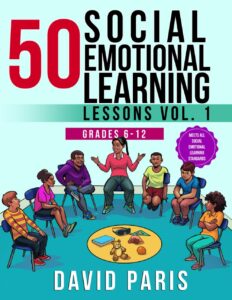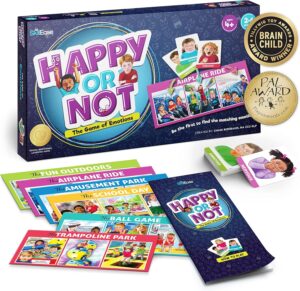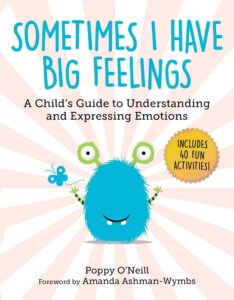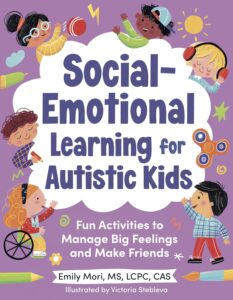As a parent of an autistic/ADHD child, you already know how much your child struggles with social skills, communication and emotional regulation. Autistic children tend to have much more difficulty developing these skills than their neurotypical peers. However, the good news is that your child with autism can improve these essential life skills through social-emotional learning, or what is called SEL for short.
What is Social-Emotional Learning (SEL)?
First, what is social-emotional learning? The Collaborative for Academic, Social, and Emotional Learning (CASEL) defines Social-Emotional Learning as “the process through which all young people and adults acquire and apply the knowledge, skills, and attitudes to develop healthy identities, manage emotions and achieve personal and collective goals, feel and show empathy for others, establish and maintain supportive relationships, and make responsible and caring decisions.”
SEL focuses on five skill sets:
- Self-awareness
- Relationship skills
- Self-control (or self-management)
- Social awareness
- Responsible decision-making
All of these skills are essential to every person living a healthy life with others. Yet, these are very skills that so many autistic children and teens (and adults) struggle with every day.
Many times, schools – especially special education classrooms and support programs – will teach SEL skills to students. Some school systems implement SEL best practices across all their classrooms to support all students and not just those who have Individualized Education Plans (IEP).
At school, SEL could look like:
- An activity in which a teacher will have students identify how they are feeling at the moment since being aware of their emotions is a key foundational aspect of SEL.
- A session during which the teacher talks about coping strategies for dealing with certain emotions such as grief or anger and the importance of learning emotional control.
- An exercise that discusses the differences between healthy and unhealthy relationships and how to make and keep friendships.
During your autistic child’s next IEP planning session, be sure to ask their team if they could add SEL to your child’s plan if they haven’t already.
How can Social-Emotional Learning help those with autism?

Social skills, effective communication and emotional regulation are challenges at the heart of autism. Autistic people think differently because of the way their brain has developed, and it can be difficult for them to communicate and build relationships the way neurotypicals do. It’s also hard for them to understand and control their emotions.
Social-emotional learning is a key to helping those with autism develop these essential skills in life. It can help them immensely in school, at home and in their future lives at work and in their community. SEL can help them:
- Regulate their emotions
- Be more self-aware
- Build more positive relationships
- Increase their self-esteem
- Teach them how to set goals and make good decisions
- Foster independence
- Enhance social skills
- Help them communicate more effectively
I now can see where my son J’s speech therapist in elementary school incorporated SEL into his social skills and communication training. It definitely helped him be more aware of his emotions and how to better manage them along with improving his social awareness.
Ways you can support your autistic child’s Social-Emotional Learning

So, how can you as a parent or caregiver support Social-Emotional Learning for your child with autism? Here are some suggestions.
1. Role play different scenarios with your autistic child
Role play is a wonderful way to help your child better understand how to act socially and emotionally to different situations. (I wrote an entire post about role play, and it includes a link to my role playing guide you can download for free.)
2. Model behaviors for your child
Children pick up so much by watching our actions and behaviors. Your child will learn from you by watching you effectively manage your emotions, interact with others and communicate well.
3. Look for teachable moments
Teachable moments are available every day for all of us. When you see good and bad examples of emotional control and social interactions, point them out to your child and discuss them. What went well? What could have been better? What could you or they improve in future situations?
4. Help them identify their emotions
Learning how to control emotions better first requires accurate identification of them. I think many autistic children have the big ones – happiness, sadness, anger, fear – figured out. I believe many children need help in identifying some of the more subtle ones and putting names to them – irritability, frustration, confusion, worry, contentment, optimism and many more. You could use an emotions chart and social stories to help your child identify their feelings.
5. Assist your child with learning perspective-taking
Being able to understand other people’s point of views or feelings can go a long way in improving relationships. That is why it’s important to help your autistic child learn perspective-taking. Read this blog post for suggestions about how to help your child improve this skill.
6. Teach your autistic child problem-solving skills
Learning how to solve problems and resolve conflict is an essential skill set for your child to learn. It’s important they learn how to observe the problem, figure out how they are feeling, determine how they want to feel, think about solutions, and then come up with a plan to fix the problem. This article has some great ways to help teach your child problem-solving skills.
Have you successfully incorporated social-emotional learning into activities with your child with autism both at home and at school? What is your advice for other parents? Leave a comment below so that we can share and encourage each other on this journey.
Additional Resources
Want some additional resources? Check out these.
Social Cipher Online Game (read my review and use Code TAMARA10 at checkout)

50 Social Emotional Learning Lessons Vol. 1 (affiliate link)

Happy or Not Board Game (affiliate link)

Sometimes I Have Big Feelings: A Child’s Guide to Understanding and Expressing Emotions (affiliate link)

Social-Emotional Learning for Autistic Kids: Fun Activities to Manage Big Feelings and Make Friends (For Ages 5-10) (affiliate link)








